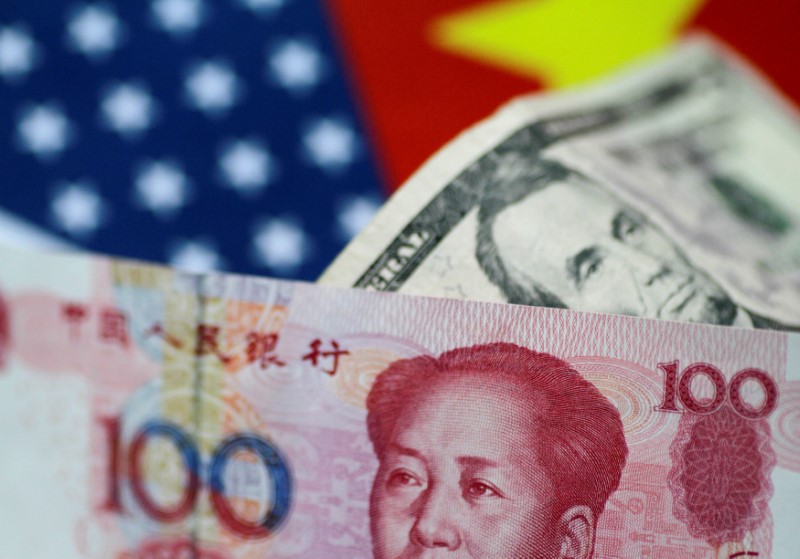US LNG exports surge but will buyers in China turn up?
Investing.com -- While China continues expanding its central bank digital currency (CBDC) project as part of a broader de-dollarization push, its efforts are unlikely to challenge the dollar’s global dominance, according to new commentary from Yardeni Research.
China’s digital yuan, or e-CNY, remains the world’s largest CBDC pilot, with the People’s Bank of China outlining fresh plans to scale it up both domestically and globally.
In June, six foreign banks—including Singapore’s UOB and South Africa’s Standard Bank—joined the yuan-based Cross-border Interbank Payment System (CIPS), which Beijing sees as a rival to the SWIFT network.
The broader goal is to support a “multi-polar currency system,” according to PBOC Governor Pan Gongsheng.
This expansion is taking place alongside rising geopolitical tensions and a renewed push by China to present the yuan as a viable dollar alternative. Beijing is betting that “Trump’s tariff turmoil will have more nations getting on the de-dollarization bandwagon.”
However, Yardeni cautions that “the e-CNY isn’t likely to be the dollar-killer that Xi hopes.”
Despite the scale of China’s CBDC ambitions, structural weaknesses in the Chinese economy are likely to constrain global trust and adoption.
The yuan’s share of global foreign exchange reserves stands at just 2.2%, compared to 58% for the U.S. dollar.
Yardeni notes that “the yuan punches far below its weight” due to the Chinese government’s reluctance to make the currency fully convertible—a reflection of President Xi Jinping’s tight control over the financial system.
Trust is another limiting factor. “Absent an independent monetary authority, why would global institutions trust the PBOC’s e-CNY?” Yardeni asks, highlighting concerns over transparency and governance in China’s economic data.
China’s internal economic challenges, from property market stress to local government debt and weak consumer demand, also weigh on the digital yuan’s credibility.
Though some economists argue that the e-CNY could be used to implement deeper negative interest rates to spur consumption, Yardeni believes that such measures wouldn’t address the broader “above-the-ground headwinds darkening household confidence.”
Overall, the market research firm concludes that “China’s designs on rivaling the dollar have a cart-before-the-horse problem.” The strength of a digital currency, it argues, depends more on the underlying economic fundamentals than the technology itself.
